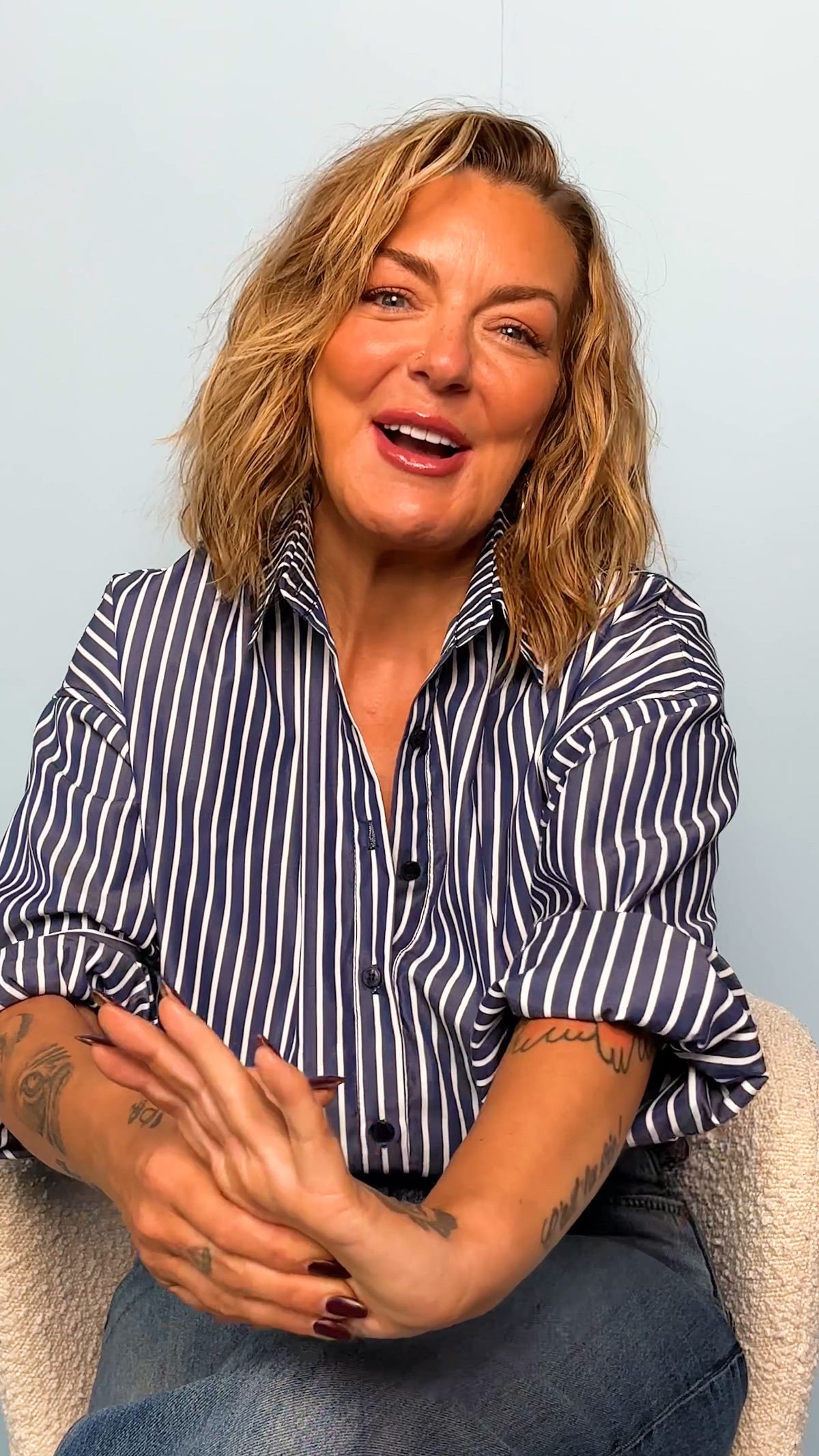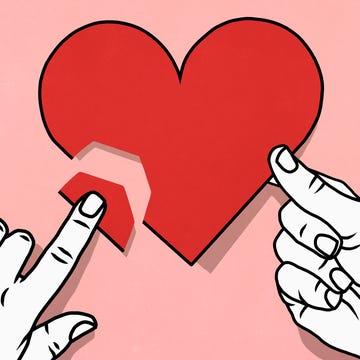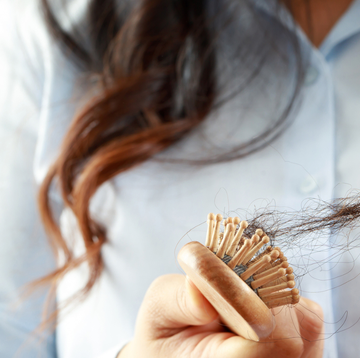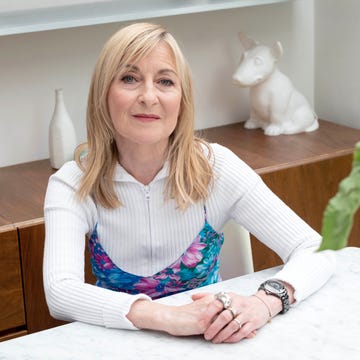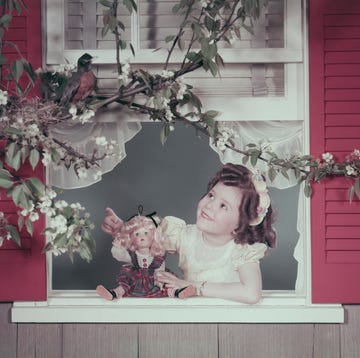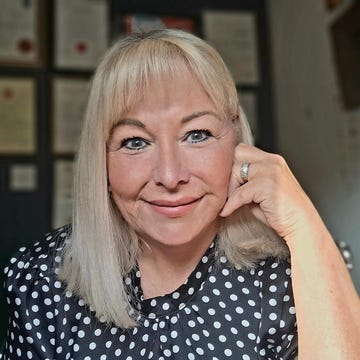I don’t do relationships. Romantic ones, that is. Friendships? No problem. Met my best friend Helen when we were 14 and we’re still in love. But me and men? If I tell you that my only relationship ended the day after Princess Diana died in 1997, I’m not just trying out a nicely paced line; I’m telling you the pathetic truth: I’m 59 and I’ve had one relationship in my entire life.
One.
I’m okay-looking, I’m empathetic, I can be funny and smart. So why isn’t that enough for Cupid?
What to read next
That relationship (with the sweetest man, whose surname was King. I could’ve been ‘Bibi King’! I’ll probably never get over that) lasted from 27 to 31 – and ended because, though he was lovely, we were never a fit. And my other dalliances, before and after? One-night stands, three-month collapses and very many infatuations.
I tried; really, I did. I’d date friends of friends (one dumped me in a pub called the Famous Cock Tavern – guess what his nickname ended up being?); I tried dating sites (met a man who cried when he told me about his missing son… the kid wasn’t missing; he was hiding on their allotment); I spent the weekend with a bloke I’d met months earlier on Twitter (who ditched me by text on my way home)…
And on the disastrous tale goes. No love since 1997 – and my last ‘potential’ spent our only rendezvous looking over my shoulder and smiling at the younger, prettier woman behind me.
What awful relationship luck, right? Hmm… I co-host a podcast with the brilliant presenter Guy Lloyd, and one of our guests, the fabulous Cate Mackenzie, aka The Love Coach, recently said something that really annoyed me – and then really made me think.
I was telling Cate about my approach to dates – play them down because being ‘judged’ is too terrifying – and I described what I’d worn to my last one: ‘Little makeup, my dead dad’s jumper and a tote with “Back Off” written on it.’
‘That’s self-sabotage,’ Cate declared. ‘And you’re using humour as a barrier.’
‘I’m just being me!’ I said. ‘The man for me would get that and love that.’
But Cate’s words stayed in my head. I don’t take back the humour, but was I setting myself up to fail? Was this my doing and not pesky fate’s? Because when I really looked at the hook-ups, the flings, the crushes, I realised there was no way I hadn’t met one man I could be happy with. No way. So why hadn’t it happened? Or, more pertinently, what had happened?
I wasn’t sure. But things started to shift. I began seeing a new therapist and when he asked what I wanted from our sessions, instead of saying, ‘To be less anxious and depressed,’ or ‘To get over the deaths and childlessness and homelessness,’ I said, ‘I want to meet someone.’
I’d only ever said that aloud once before, when we were recording the pod: when I talked about how I’d never been in love and been loved – and I didn’t want to live my whole life without experiencing that. After the show, Guy’s lovely mum, who’d been in the audience, came over and gave me the tightest hug. My words must’ve sounded as true as they felt.
And then, another change. I went on a date with someone – let’s call him T – and decided I’d really like to give this my best shot. We met on a dating app. T ‘liked’ me; we began messaging. Then we had our first date the morning after – and saw each other every day for two weeks.
T is very attractive, very clever, very funny, very emotionally intelligent. I’m very excited. Whatever I’ve been doing wrong, I need to stop. I need to find out what’s been going on, why and how to change. So, what to do?
Step 1 Face up to the problem
Okay, I self-sabotage. I not only dress down for dates, but my ‘he has to be’ list is so unrealistic – hilarious, genius, hot firefighter who’s won the Nobel Peace Prize – he doesn’t exist. Which means a relationship can’t happen. Which means I don’t have to risk getting hurt.
If a ‘relationship’ does start, I’m oversensitive and insecure. (I’ve already done this with T; treated him to my terseness because I didn’t think he’d said I look good for my age. He had. Lucky T.) This ruins the fun, which ruins the relationship, which means – yet again – I don’t have to risk getting hurt.
And the ultimate act of self-sabotage? Falling for emotionally unavailable men. Yet again: ‘relationship won’t happen’ equals ‘I don’t have to risk getting hurt.’ Yes, I’m quoting Sex And The City, but the men I’ve chosen were just not that into me.
I talked to my new therapist about the self-sabotaging and picking the wrong men, and just like that, I realised: forget them just not being that into me; I’m just not that into me.
The years I’ve wasted analysing and making excuses for them should’ve been spent analysing and not making excuses for me – because I was the problem here. I was the one attracting men who didn’t want to commit, because I didn’t want to commit. Not deep down. Felt too dangerous. Traumatising relationship role models will do that to a gal. (Although it’s hard to commit to some men… The ‘sweet-shop’ mentality surrounding online dating – so much deliciousness to choose from – seems to have made many men, and women, more picky and less kind/faithful.)
My therapist agreed – and added this to the mix: not only did I not really want to commit, I actually felt safe in that ‘high octane’ starting stage of relationships because those heightened emotions were familiar to me from childhood.
Ouch. This definitely all needs to change. But how?
Step 2 Stop the self-sabotage
Time to speak to the wonderful Lucy Cavendish – counsellor, relationships therapist, author of How To Have Extraordinary Relationships (Quadrille) and host of the podcast of the same name. What should I do? ‘To stop self-sabotaging, work out why you’re doing this,’ she says. ‘Self-sabotage is all around belief, and a lot of our beliefs start in childhood.
If we constantly tell ourselves a narrative about ourselves that’s negative (e.g. “I’m not good enough”), we default to this state.
‘We need to work out what our patterns are, then the sabotaging story will begin to emerge as we recognise our thoughts and actions that get in the way of happy, healthy love. When we recognise this, we can choose to tell ourselves a different story: “I am more than worthy” etc. The more we tell ourselves good
things, the more we strengthen the positive neural pathways in our brain
so, in the end, this feels more true.’
Step 3 Unstick myself
How can I stop being frightened of relationships? ‘Fear keeps us stuck, so naming the fear and looking at what’s behind it is very important,’ says Lucy. ‘Ask, “Why am I so scared of relationships?” and let the answer/s come to you.
‘Then ask, “What’s the worst that can happen?” We all get our hearts broken. We all get hurt. Sometimes we make bad decisions. But then we learn. We learn to trust ourselves, our judgement and our ability to love and make good decisions about love.’
Lucy’s final piece of advice? ‘Learn about relationships: watch films, talk to people, get some coaching. Make a commitment to taking a stand for your future. Ask yourself, “How would it feel to be in a wonderful romantic relationship?” and then explore how that is for you. Everything starts with action, and that’s the key to finding a relationship – even if you feel that’s almost impossible.’
Step 4 Talk about it
I call Cate for more advice. ‘Keep in mind, your saboteur may turn up – it’s been working hard to keep you single, has lost its job and may want that job back,’ she warns. To guard against that, she advises me to nominate some trusted friends to speak to about any fears – including a man, for the male perspective.
‘Remember, you’re good at relationships and have nurtured deep friendships for years,’ she says. ‘You can do this with him.’
Step 5 Listen (to him, and to yourself)
‘Tune into your heart to work out what would be the happy ending,’ Cate tells me before I ring off. ‘Travel? Living together? Marriage? Knowing what you want will help you get there.
‘There are two choices in relationships: ignore what’s going on underneath or dare to listen to each other deeply. That can be triggering, but it ultimately leads to real intimacy and being able to tend to each other properly.
‘In couples therapy, we talk about “harmony, rupture and despair” – but if we listen, we can have harmony, rupture and repair. Rupture is guaranteed, but it’s the couples that repair often and quickly that keep the connection good and happy.
‘And, finally, affirm that you want love each day and be open to receiving that. I’m so excited for you!’
Same! I’m determined to follow this advice. I want to be with someone. Not just for companionship – I have EastEnders for that – but for that soul-filling joy. I’ve lived my entire life on my own – no one to share the good times with and no one to look after me during the bad. Fifty-nine years. Long enough. Oh, my God, what if I can actually do relationships? Can you imagine?
To find out more about Lucy and Cate, visit lucycavendishlovecoach.com and catemackenzie.com.

